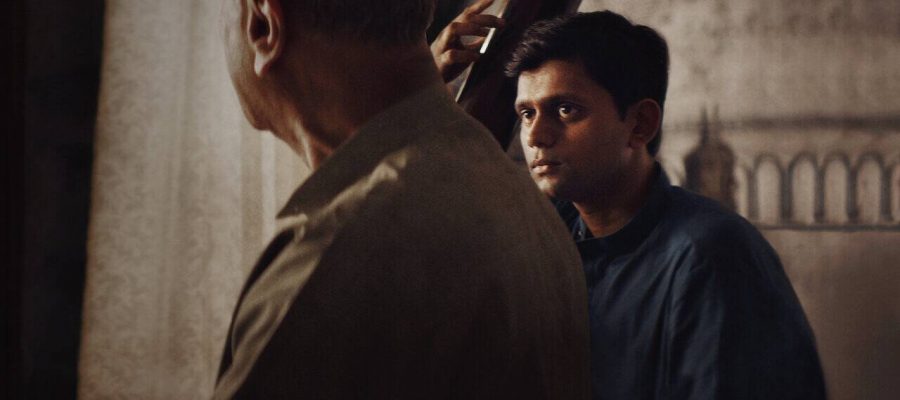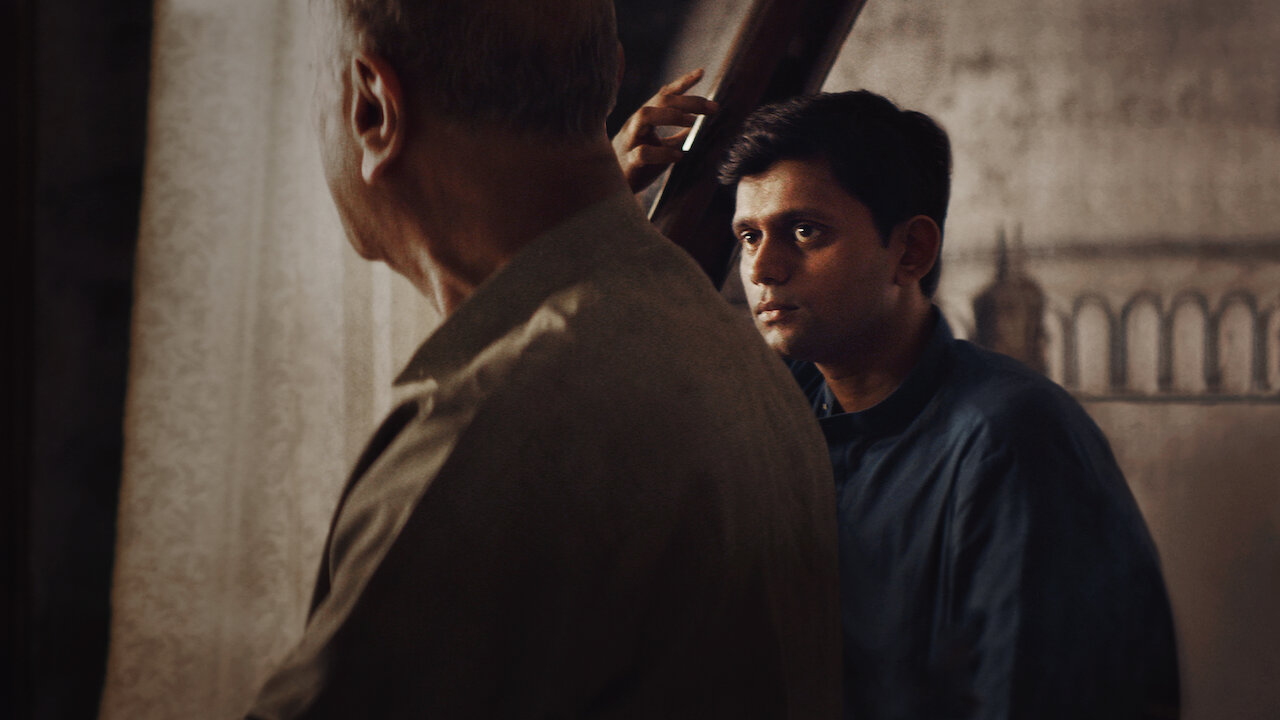If Disciple feels more personal than most, it is because its preoccupations are more noble than what it appears. The question at the heart of this artistic expedition is not the need to achieve greatness but the reason for doing so
Although art exists in abstraction, the intent of artists is absolute: greatness. It is what stirs the process of creation and incentivises completion. It is what sustains the struggle and strengthens the tenacity of creating. If art is a calling, then the prospect of achieving greatness is the voice that shepherds the journey of realisation. It is what lies ahead of potential, bridged by unrelenting striving and fuelled by creative idealism. It is the marriage of ability and ambition, an alliance a deficient world trudging on mediocrity is trained to recognise.
In Disciple — a luminous study of a classical singer immersed in his struggle for excellence — Chaitanya Tamhane deconstructs this syntax.
The film opens with a performance. The setting is intimate and the listeners are moved. As the camera moves closer, we witness Sharad Nerulkar (Aditya Modak) sitting adjacent to his ageing guru (Arun Dravid) mirroring the affectedness of the crowd. Holding the sitar, Sharad is both the performer and the audience. This is followed by another performance. The setting shifts to a cramped room. Sharad is singing but mostly looking at his guruji, still as enraptured as he was before. He is listening more than imbibing; his eyes sparkle with quiet sincerity. It is similar to admiration but comes closest to reverence. Their positioning — Sharad on the floor and guruji on the bed — outlines the arrangement of their relationship: he is not a student, he is a disciple.
The guru-shishya parampara — a paradigm as old as time — rests on the central idea of ingraining a skill through the language of reverence. It is not as much as grasping expertise, as it is about sharpening that grasp over the years; it is not merely learning something for livelihood, but learning to live with it for life. It is training, yes, but also a prolonged preparation. It is a means of survival and a way of life. It is a roadmap to greatness culling out sacrifice as an essential conveyance. And sacrifice Sharad does.
He lives without his parents and hardly calls his mother. He spends hours alone, introducing himself as a performer in a make-believe world and practising his vocals. He barely has friends. He hangs on every word of his guruji, aching for validation. And when he travels through the deserted streets of nocturnal Bombay, he pores over the precious recordings of Maai — voice over by Sumitra Bhave — his guru’s guru, a mythical presence who leads him on when guidance appears too unyielding. She cautions him of the rocky terrain ahead, informing him he will have to barter materialistic pleasures for eternal quest in this chosen path — “If you want to earn money, raise a family, then perform love songs or film songs. But if you want to walk this path, learn to be lonely and hungry.” Sharad’s compliance is akin to uncompromising obedience. He is living a life of artistic exile; his creative idealism is incontestable, art is his devotion.
But years pass, and from an idealistic 20-something, Sharad transitions to a middle-aged man. The setting hardly changes but everything else does. He still spends his days alone but graduates from practising to watching videos of his once-contemporaries being feted abroad. And then, like an artist spurred by insecurity, evaluates his own performance on YouTube and half-writes a retort to a mean comment. The intervening time weighs down on him; worldly amorality infects the purity of his pursuit. His faultless loyalty to his guruji, however, remains unchanged. He continues showing footage of his performance to his frail teacher, impoverished of appreciation still. The nature of his striving becomes clearer then: the terminus of his flight to excellence was always guruji’s acknowledgement. Sharad never ceased being a disciple.
One way of looking at Disciple is as a critique of an outmoded pedagogy, Tamhane realigning the lopsided power dynamic ingrained in such arrangements with the triumph of his career rooted in equal alliances. Little about it is unknown. His association with Vivek Gomber sparked off a dynamic professional collaboration, the latter not just bankrolling both his films — Court (2014) and Disciple — but being instrumental in shifting the course of his career. But Tamhane’s latest featuring Academy Award-winning director Alfonso Cuarón as an executive producer encloses a more buoyant story of partnerships. Having first met through the Rolex Mentor & Protégé Arts Initiative (2016-2017) — Tamhane was the mentee — they developed a relationship resting on mutual admiration.
But Tamhane’s sophomore film — which quietly landed on Netflix this week after a terrific festival run, winning the prestigious FIPRESCI award at the Venice Film Festival in 2020 — is a blazing accomplishment, narratively self-contained and thematically porous. It is the story of an insular subculture, but its grand themes resonate universally. It is at once about Sharad’s disillusionment and an intimate portrait of artists immersed in the lonely process of creation.
If Disciple feels more personal than most, it is because its preoccupations are nobler than what it may seem like. The question at the heart of this artistic expedition is not the need to achieve greatness but the reason for doing so. What the 34-year-old director, sobered with his own share of disenchantment seems to ask is, do we not understand artistic greatness in conjunction with the artist? And if so, isn’t our devotion misplaced?
This is a recurring interrogation in the film most acutely evidenced in the inclusion of a pulpy reality TV show and a contestant Sharad watches with detached interest. He witnesses her meteoric rise, three judges from a world starkly different from his lauding her. A younger Sharad would have scoffed at it, the older one merely observes. One can almost see Tamhane in the protagonist, looking at his younger self who started his career writing for television shows, with acceptance and not derision.
The other way of looking at Disciple is acknowledging the queries it levels against traditions and legacy, accepting the hypocrisy in the segregation of high and low art. By subverting our idea of virtuosity, Tamhane upholds a more crucial question: what then is the impetus? The film ends with a curious staging of two artists caught in the middle ground of a train. One sits resigned and the other still at it. And herein resides the answer: the process is the privilege, greatness, a pursuit and not a purpose. Artistry is a heightened sense of inability to do anything else; creative idealism is accepting life and sparring with fate. Sharad sparred with life and accepted fate. Maybe he always wanted to be a disciple.
For more lifestyle news, follow us: Twitter: lifestyle_ie | Facebook: IE Lifestyle | Instagram: ie_lifestyle
Source: Read Full Article



